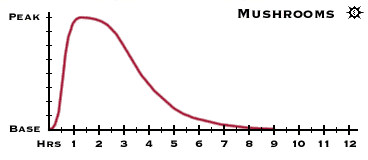urpiainen kirjoitti:
Ymmärrän, että saatat painottaa kokemusta enemmän kuin todellista sisältöä, mutta silti en näe, että olisi kovin tavoiteltavaa saattaa itsensä tilaan, jossa pitää latteuksia viisauksina.
Niin, tämä lienee riippuu ryhmästä, sen koulutuksesta ja monesta muusta. Minun seurassa on istunut fyysikoita, jotka ovat ottaneet omia keskeneräisiä teorioitaan uudelleen tarkasteluun, psykologi joka käytti aikaansa itsetutkisteluun ja osallistui analysoimalla ajatuksiaan tunnettujen teorioiden pohjalta, koittaen etsiä niistä virheitä jotka perustuvat perpektiivin muutokseen. Sitten on meitä IT-hörhöjä jotka kulutamme happea pohtimalla mitä erinmoisimpia IT-ratkaisuja.
Pilvipalvelun idea heitettiin ilmoille ennen kyseisen käsitteen sisäänajoa, harmi ettei silloin ollut teknistä osaamista ajaa asiaa eteenpäin. Samoin kuin jopa yksi peli, jota nyt tehdään harrasteprojektina.
Sitten tietty on vaan ihmetelty maailmaa ja sen menoa, sekä naurettu sen absurdiulle. Tottakai turhaa filosofista haihattelua mahtuu joukkoon, mutta ei se ole pelkästään sitä, eikä se että se on "latteaa" laske ollenkaan sen viihdearvoa.
Mutta painotan että jos elämän sisältö on huumeet, niin ei varmasit kovin fiksua juttua ole irtomassa, vaikka söisi mitä. Omassa kaveripiirissäni se ei vaan ole niin, ne ovat vain pieni mauste elämässä. Psykedeelit ovat tuottaneet fiksuja ajatuksia ja suuria keksintöjä, kunhan ne vain ovat fiksujen ihmisten päissä.
Jos pidät kaikkea tuollasita turhana haihatteluna niin perehdys näihin:
FRANCIS CRICK, the Nobel Prize-winning father of modern genetics, was under the influence of LSD when he first deduced thedouble-helix structure of DNA nearly 50 years ago.
Dr Kary Mullis
Nobel Prize Winner for Chemistry in 1993 and inventor of PCR, a method for detecting even the smallest amount of DNA in ancient materials. "Would I have invented PCR if I hadn't taken LSD? I seriously doubt it," he says. "I could sit on a DNA molecule and watch the polymers go by. I learnt that partly on psychedelic drugs."
EDIT:
Mielenkiintoinen näkemys psykologilta sieniajatuksista ja sen hyötypuolista:
As a retired clinical psychologist, Clark Martin was well acquainted with traditional treatments for depression, but his own case seemed untreatable as he struggled through chemotherapy and other grueling regimens for kidney cancer. Counseling seemed futile to him. So did the antidepressant pills he tried.
Nothing had any lasting effect until, at the age of 65, he had his first psychedelic experience. He left his home in Vancouver, Wash., to take part in an experiment at Johns Hopkins medical school involving psilocybin, the psychoactive ingredient found in certain mushrooms.
Scientists are taking a new look at hallucinogens, which became taboo among regulators after enthusiasts like Timothy Leary promoted them in the 1960s with the slogan “Turn on, tune in, drop out.” Now, using rigorous protocols and safeguards, scientists have won permission to study once again the drugs’ potential for treating mental problems and illuminating the nature of consciousness.
After taking the hallucinogen, Dr. Martin put on an eye mask and headphones, and lay on a couch listening to classical music as he contemplated the universe.
“All of a sudden, everything familiar started evaporating,” he recalled. “Imagine you fall off a boat out in the open ocean, and you turn around, and the boat is gone. And then the water’s gone. And then you’re gone.”
Today, more than a year later, Dr. Martin credits that six-hour experience with helping him overcome his depression and profoundly transforming his relationships with his daughter and friends. He ranks it among the most meaningful events of his life, which makes him a fairly typical member of a growing club of experimental subjects.
Good human, but sometimes if needed, a bad citizen.
